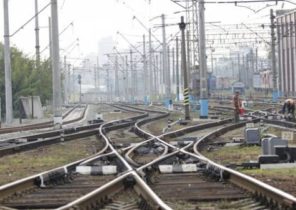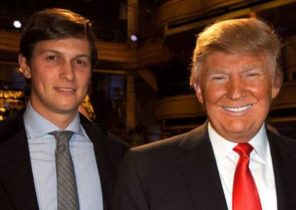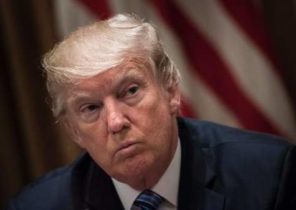
What Donald trump became President of the United States, tells about the rapprochement of America with Russia Vladimir Putin. France, like other European countries, to the same extent concerned about the Pro-Putin discourse, argues Olivier Schmitt in his book “Why Putin is our ally? The anatomy of French passions”. That is an expression of this “routinism” in the West? Interview with Schmitt, Professor at the Centre for military studies University of southern Denmark.
Le devoir: Will the Russian President to invade the West from a political point of view?
— Moscow is playing on the ruins of Western society, disillusioned by the democratic process and the rise of nationalist populism. Positive attitude towards Russia is very closely linked to the support of the national-populist movements like the National front in France or UKIP in the UK.
Russia supports these sentiments in two ways. First, with government controlled media (Sputnik and Russia Today), the editorial policy which largely consists of populist and sometimes conspiratorial materials. And secondly, providing direct or indirect support of politicians and parties, and Russia is important, that they shared its populist-reactionary discourse and can act in its interests. This party is the national front (France), Vlaams Belang (Belgium), Jobbik (Hungary), etc.
However, as shown by the research center Pew, 67% of Americans, 59% of Canadians, 70% of French and Germans, 69% of Italians and 66% of Britons have a negative attitude to Russia. It also reflects the weaknesses of populist-reactionary discourse and the morale of a democratic society.
— What do you think about this Russophilia or “putinopoly”?
— Need to distinguish between the Russophile and “putinomania”. You can love the Russian culture regardless of the views of the current rulers. In connection with the last paragraph is easy to notice the many semantic factors which you can find many “supporters” of Putin. For example, talk about “humiliation” of Russia after the cold war and a repetition of the elements of rhetoric “mode”.
Obviously, modern Russia is not satisfied with its inability to achieve the desired results in foreign policy, after her in the recent past was assessed as equal to the United States when she had a zone of influence of the neo-imperialist powers. However, the talk of the humiliation imply moral connotations, attributing exclusive responsibility of Western countries in the current situation.
Undoubtedly, their actions were mistakes, but “humiliated” Russia stealing its oligarchs and corruption of the Putin regime. At the invitation of Russia to the world trade organization, the Great eight, the international monetary Fund (in connection with which she has allocated billions) it is also difficult to find the desire to “humiliate”.
We see other strong rhetorical markers, characteristic examples of which are the claim that “Crimea always belonged to Russia” (which is not), what Putin “restored order” in Russia.
Usually “putyatinsky” discourse is built around four rhetorical motives that Putin is a “great” Manager, that Russia and the West unite “common values”, which are the basis for the convergence and that this convergence is of course included in the scope of our “geopolitical interests.” The fourth postulate is that all, whatever is done, Russia, the United States already did, and it justifies any actions of the regime.
— Francois Hollande, Theresa may, Angela Merkel insisted that Donald trump has maintained sanctions against Russia. Is this a sign that Europe is still opposed to Russia’s position?
Current European policies do have some experience dealing with the Russian regime. They understand that the present situation requires a long and complicated restructuring of the European security system. And sanctions are one of the available West leverage in the negotiations.
— How to manage relations with Russia in this context?
— Russia stepped in political and ideological attitudes instead to engage in coherent strategic analysis. The challenge is to ensure that the strategic objectives were at the center of discussion of the public.
When Moscow refuses to revise the Vienna document of the OSCE, which lets you send Western observers to places of military exercises Russia (and Vice versa), and she mobilizes at the same time during exercises hundreds of thousands of military, what are its intentions? When the Russian nuclear doctrine involves “aggressive defense” (immediately equip the country with nuclear weapons, if there is any crisis in order to avoid compromise) how to preserve the strategic balance? When Russia methodically threatens the European security system (the Treaty on conventional armed forces in Europe, the Helsinki principles, tactical nuclear disarmament), how to rebuild relationships, while ensuring the security of the European citizens?
If all of these strategic objectives to make the subject of public comment, it will allow you to exit politicking and ask fundamental question about what we are willing to sacrifice our safety and values to meet Moscow.







